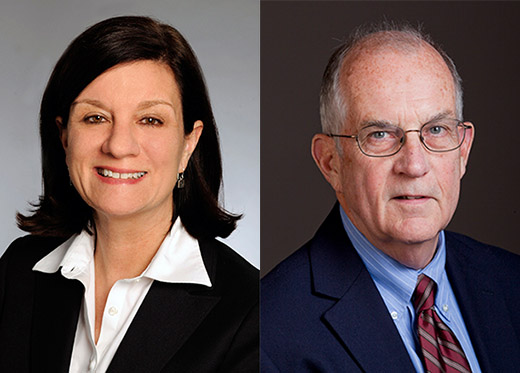As the population of Americans living with Alzheimer’s disease and similar disorders grows, a new research center at Emory University will explore ways to strengthen support for informal caregiving so these individuals can live in their communities and outside of institutional settings for as long as possible.
The National Institute on Aging (NIA) has awarded a five-year, $3.66 million grant to Emory’s Nell Hodgson Woodruff School of Nursing to establish an Edward R. Roybal Center for Translational Research in the Behavioral and Social Sciences focused on dementia caregiving.
The NIA, part of the National Institutes of Health (NIH), funds a broad scientific effort to understand the nature of aging and to extend the healthy, active years of life, and is the primary federal agency supporting and conducting Alzheimer’s disease research. Emory’s center will be one of the 13 Roybal Centers nationally, and one of four Roybal Centers focused on development of interventions to improve and support dementia care.
“This is a tremendous opportunity for us to bring together critical resources and particularly key Emory clinicians and researchers to advance our learning around how people can live with Alzheimer’s and continue to age in place,” says Linda McCauley, PhD, dean of the School of Nursing.
Kenneth Hepburn, PhD, a professor in the School of Nursing, and Molly Perkins, PhD, an associate professor in the Emory University School of Medicine, will lead the center as co-principal investigators.
“As the U.S. continues to experience major reconfigurations in its social and demographic composition, we expect caregiving to occur in an ever-increasing set of different contexts,” Hepburn says.
Perkins adds, “By 2050, as many as 20 million Americans will be living with these illnesses, and the number of informal caregivers will expand to 40 to 50 million. Informal caregiving is the key to the quality of life and continued community-living for persons living with Alzheimer’s and similar illnesses; it is also a bulwark against rising health care costs.”
Emory’s center will support research pilot projects that are designed with caregivers/consumers from various caregiving settings. “Our center will provide a set of integrated processes and a method of ‘design thinking’ embedded in our Design Studio that creates a pipeline leading to increasingly sophisticated caregiver interventions,” Hepburn says.
Both Hepburn and Perkins are experienced leaders in aging and are fellows of the Gerontological Society of America.
- Hepburn serves as educational lead for Emory’s Goizueta Alzheimer’s Disease Research Center (ADRC), one of 32 Alzheimer’s disease research centers in the United States supported by NIH. He leads the community services education core of the state-funded Georgia Memory Net program and is the lead author of the Savvy Caregiver Program, a psychoeducation program designed to promote caregiving mastery in those caring for persons with dementing illnesses. The Savvy program is the most widely distributed evidence-based caregiver education program in the country and is a guiding concept behind the formation of the Center.
- Perkins co-directs the Scientific Working Group on HIV and Aging within Emory’s NIH Center for AIDS Research (CFAR) and co-leads the national NIH Inter CFAR HIV and Aging Working Group. She is Atlanta site director for research for the Birmingham/Atlanta VA Geriatric Research, Education and Clinical Center and is a member of the graduate faculty of Emory’s Department of Sociology.
“We are fortunate to have leaders in caregiving research like Drs. Perkins and Hepburn, as this critical area of research is urgently needed to address a growing gap in care. This is a priority at the Goizueta ADRC and across the U.S. as part of the national plan for Alzheimer’s disease,” says Allan Levey, MD, PhD, director of the Goizueta ADRC and member of the U.S. Department of Health and Human Service’s Advisory Council on Alzheimer's Research, Care and Services.
Theodore Johnson II, MD, MPH, professor and chair of Emory’s Department of Family and Preventive Medicine, as well as Paul Seavey Chair and chief of the General Medicine and Geriatrics division, is a key collaborator; his division will augment the funding of any geriatrics division–based pilot.
Rounding out the Roybal Center leadership team are Emory School of Nursing faculty Drenna Waldrop-Valverde, PhD; Mi-Kyung Song, PhD, RN; Carolyn Clevenger, DNP; and Melinda Higgins, PhD.

